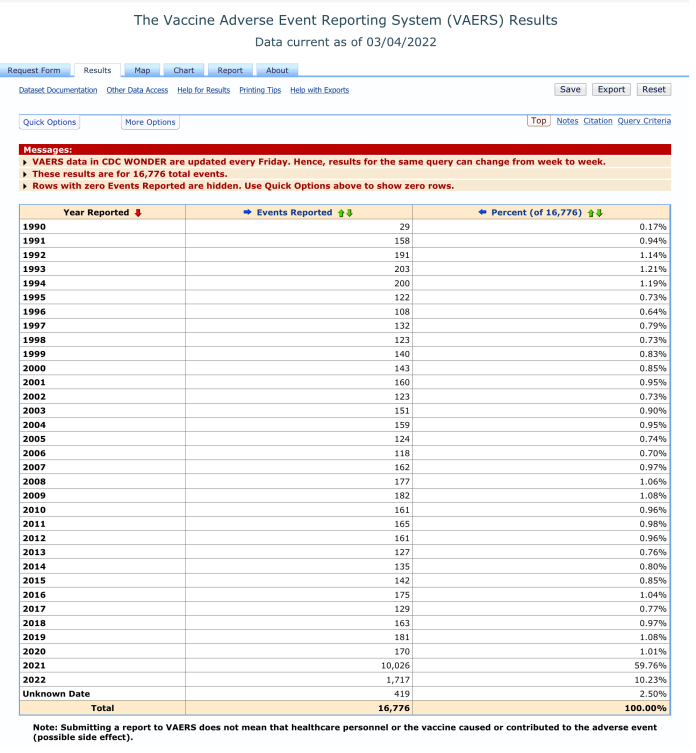March 17, 2022
On Mar. 7, 2022, in a press release titled “Large U.S. study confirms most mRNA COVID-19 vaccine side effects are mild and temporary,” The Lancet announced a new U.S. Centers for Disease Control-funded mRNA “vaccine” study. Immediately, numerous publications, including WebMD, Medscape, USAToday, and Forbes, shared the narrative. Likewise, the U.S. Sun reported on the study with the triumphant headline, “JABULOUS No death linked to Pfizer and Moderna Covid jabs, major new study finds.”
According to The Lancet, the observational study—with acknowledged limitations— analyzed data reported to VAERS and v-safe from Dec. 14, 2020, to Jun. 14, 2021. VAERS reports were categorized as non-serious, serious, or death. During the six-month study period, nearly 300 million doses of mRNA jabs were given in the United States. The study authors determined that self-reported data from the two complementary safety monitoring systems indicated that for the more than 298 million vaccine doses administered, 92 percent (313,499/340,522) of reported adverse events were not severe, and less than 1 percent of v-safe participants reported seeking any medical care following vaccination.
 Screenshot / VAERS Report / Deaths Reported, by Year
Screenshot / VAERS Report / Deaths Reported, by Year
Meanwhile, of the 340,522 adverse events reported to VAERS during the study period, there were nearly 4,500 deaths. The Lancet reports more than 80 percent of these deaths occurred among people ages 60 years or older. Downplaying any relation between the deaths and COVID-19 “vaccines,” the study press release remarks, “Because COVID-19 vaccines have been authorized under emergency use, healthcare providers must report all deaths following vaccination, regardless of the potential direct association.” Still, despite a noticeable rise in deaths reported following the introduction of COVID jabs, the study authors declare that “no unusual patterns were detected in cause death reports.”
The study authors, who praise the COVID-19 “vaccine” rollout, boldly state that safety monitoring of COVID-19 jabs “has been the most comprehensive in U.S. history,” utilizing established systems including the Vaccine Safety Datalink (VSD), VAERS, and “a new system, v-safe, explicitly developed for monitoring COVID-19 vaccine safety.” In the video above, Dr. Tom Shimabukuro of the CDC COVID-19 Response Team explains the agency’s expectations of VAERS, commenting:
“It’s important to understand that VAERS is not designed to determine if a vaccine caused an adverse event. VAERS reports alone generally cannot tell us if there is a safety problem with a vaccine. Rather, VAERS is an early warning system to detect possible safety problems that require further evaluation.”
The CDC-funded study—which includes manufacturer-sponsored phase 1-3 clinical trials—repeatedly explained that analysis of the deaths reported during the study period determined no unusual links to the mRNA jabs. Study authors explain that “during the study period, all COVID-19 vaccines were administered under EUAs, which require vaccine providers to report all serious adverse events (including deaths) that occur after vaccination to VAERS, regardless of whether they were plausibly associated with vaccination.”
The authors add that “heightened public awareness of the COVID-19 vaccination program, outreach and education to healthcare providers and hospitals about COVID-19 EUA reporting requirements for adverse events, and adherence to EUA reporting requirements by providers and health systems, probably all contributed to the high volume of VAERS reports received.” Reiterating the study team’s observations, study author Dr. David Shay of the CDC COVID-19 Response Team added:
“The rapid pace at which COVID-19 vaccines were administered under emergency use, especially among older populations, was unprecedented. Due to their age, this group already has a higher baseline mortality rate than the general population, and our results follow similar patterns of deaths rates for people in this age group following other adult vaccinations.”
As previously noted, the study has limitations, which the authors briefly explain. The Lancet’s press release notes that the VAERS system relies on random reporting and does not represent the entire population. Therefore, while it can monitor for potential safety signals, “it cannot define a causal relationship between vaccination and adverse events.” Still, the authors add that this limitation lies with the surveillance system and not the study method.
The Lancet press release includes several quotes from the study’s authors, including study author Dr. Tom Shimabukuro, who says, “VAERS and v-safe are important tools CDC can use when evaluating vaccine safety and help identify any unexpected or unusual events. These data are reassuring that reactions to both mRNA vaccines are generally mild and subside after one or two days—confirming reports from clinical trials and post-authorization monitoring.”
With no external funding sources, the CDC supported the entire mRNA jab study, providing it to The Lancet for release. Additionally, CDC authors were responsible for study design, analysis, data interpretation, and writing. Dr. Hannah Rosenblum, member of the CDC COVID-19 Response Team and the agency’s Epidemic Intelligence Service, declares, “Vaccines are the most effective tool to prevent serious COVID-19 disease outcomes, and the benefits of immunization in preventing serious illness and death strongly favour vaccination.” She adds:
“COVID-19 vaccine safety monitoring is the most robust in U.S. history, and the two complementary surveillance systems used in this study should bolster confidence that mRNA COVID-19 vaccines are safe.”
- TAGS
- Adverse Effects
- CDC
- Coronavirus
- Covid
- COVID deaths
- COVID-19 Vaccines
- Dr. David Shay
- Dr. Hannah Rosenblum
- Dr. Tom Shimabukuro
- FDA
- Moderna
- mRNA
- Pfizer
- The Lancet
- UncoverDC
- v-safe
- vaccines
- VAERS

Content retrieved from: https://uncoverdc.com/2022/03/17/cdc-funded-study-on-mrna-shots-very-mild-side-effects-no-deaths/.

